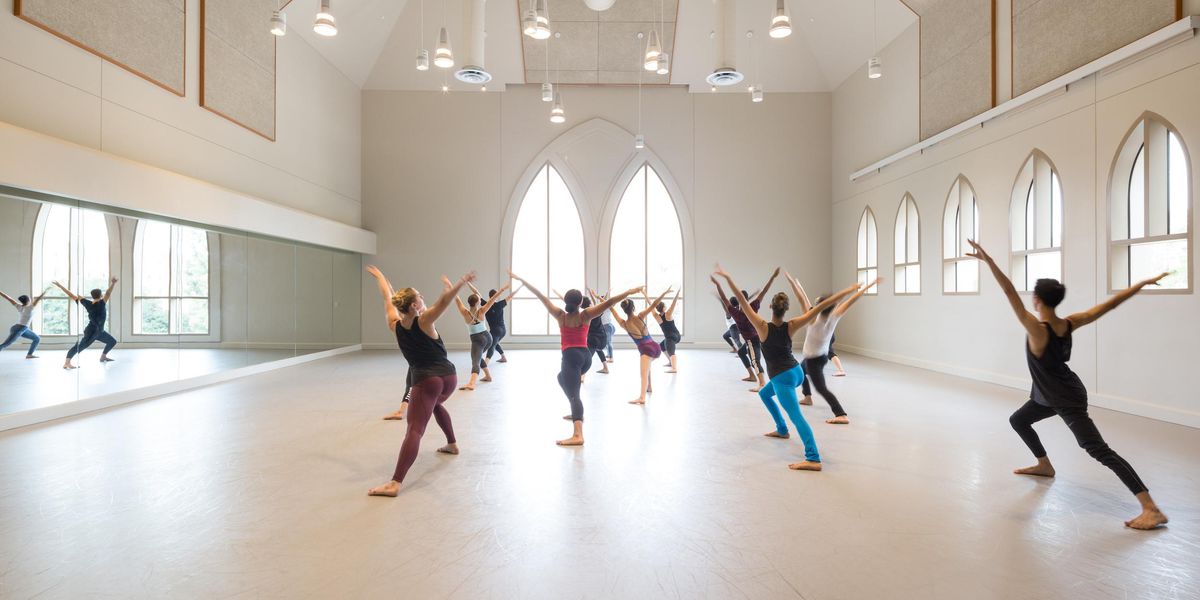Advice for Dancers
I’ve been working with a nutritionist to lose the weight I put on over the holidays. I feel healthy and strong, and I look good. My fear is that I’ll gain it all back if I relax. I have several breaks from performing coming up over the next few months. I want to rest and enjoy myself without gorging on food. Any advice?
Kaylie
Stanford, CT
You’re smart to think ahead. While all dancers need breaks to recover from an intense season or training program, it can be challenging to maintain a balance between having fun and going overboard in the calorie department. Obviously, portion control and moderate exercise can help you keep off the pounds. There’s also new research that shows that simply drinking two glasses of water before each meal prevents weight from creeping back on over the year—even when people go off their diets. How does this work? Water has zero calories (unlike a 12-ounce can of soda, which can contain the equivalent of 10 teaspoons of sugar), but it fills up the stomach, so you’re less likely to eat as much food. Imagine having an effective weight-management tool, with no common side effects, right at your fingertips! The only exception is if you drink way too much, you may develop a rare but serious condition called water intoxication. In general, daily fluid recommendations are nine cups for women and thirteen cups for men (including all beverages).
I like going for weekly massages to get the knots out of my tight calves. Another dancer told me about someone good whom she sees off and on for massages. He was really helpful and I now go to him regularly. Lately, though, he’s started to act differently, complimenting me on my body and massaging my breasts. It feels sexual. Am I wrong to be alarmed?
Weird Massage
Akron, OH
Of course you’re not wrong to be alarmed if something about the situation doesn’t seem right. Feelings are always important when your body is being touched. Although this is no guarantee, a licensed massage therapist is bound by a code of ethics to create a safe place with clear boundaries. An established clinic versus a home visit is generally the most secure environment. The massage therapist should do an initial intake to determine your needs, offer you a chance to ask questions, and tell you what to expect. It is fine to talk about your comfort levels, such as wanting to keep your bra or thong on during the massage. You should have a private place to change, or have the massage therapist leave the room while you disrobe. During the procedure, the parts of your body that aren’t being worked on should be properly covered. In some states it is legal and legitimate to give a breast massage if needed in a non-sexual, professional way to get at the pectoral chest muscles, the serratus muscles along the ribs, or to break up scar tissue and speed healing after surgery. However, the therapist should always ask your permission to touch this body part, as well as your stomach, buttocks, and over the sternum. Sexual comments are never appropriate. Neither is genital, anal, or internal touching. Be aware that sexual predators often present themselves as benign for the first few visits to gain your trust, making it all the more confusing if something inappropriate happens. You have the right to stop the massage at any time. In the worst case scenario, you can always use the line that you need to visit the bathroom, then put on your clothes and leave. Please spread the word if the therapist seems problematic to you.
Whenever I complain to my parents that I’ve had a bad day, they want me to quit dance and go to college for a “serious” career. No matter how much I try to explain it, they can’t understand that dancing has its ups and downs and that I need to pursue a performing career while I’m in my late teens and early 20s. I love ballet and it would break my heart to give it up. How can I get them to support me?
Julie
NYC
Parents who haven’t danced themselves or been avid fans of the arts may struggle with the dedication necessary to excel in this profession. Most likely, they are just trying to look after your best interests by suggesting a more traditional route through college to increase your chances of finding stable employment. Hopefully, you can reassure them that many dancers take college courses during their performance careers. There are also career transition centers to steer dancers in a direction that’s right for them after retiring, whether they choose to pursue academics or go into an entirely different field, such as becoming a chef. You could even direct your parents to the Career Transition For Dancers website for more information (www.careertransition.org).
Former New York City Ballet dancer Linda Hamilton, Ph.D., is a psychologist in private practice, the author of
Advice for Dancers (Jossey-Bass), and co-author of The Dancer’s Way: The New York City Ballet Guide to Mind, Body and Nutrition (St. Martin’s Griffin). Her website is www.wellness4performers.com.




